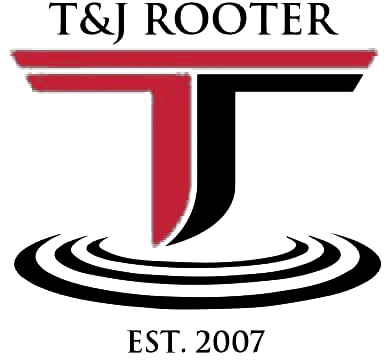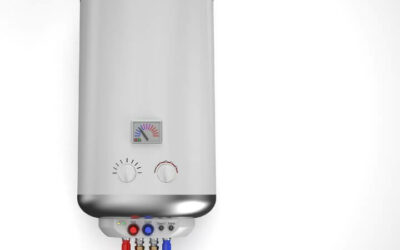Are you continuing to fill up your conventional hot water heater on a regular basis and thinking about making a switch to something else? Now may be the perfect time to upgrade to a tankless hot water heater and enjoy its unique benefits.
Tankless hot water heaters are becoming more and more popular thanks to their energy-saving properties, their cost-effectiveness, and their ability to provide a reliable supply of hot water with minimal wait time. This blog post will discuss some of the advantages of tankless hot water heaters and extoll the importance of upgrading to one. So, if you’re finally ready to make the switch and enjoy the benefits of a tankless hot water heater, read on!
Quick Clarification
Upgrading to a tankless hot water heater can reduce household energy costs, increase efficiency and conserve as much as 15-20 gallons of water per day. Furthermore, it can also provide more convenient access to hot water with an endless supply which is ideal for large households.
Understanding Tankless Hot Water Heaters
Understanding tankless hot water heaters can be the difference between making a informed purchase decision and regretting it later. Tankless systems are far more efficient than traditional storage tanks, but they have different needs when it comes to power and up-front costs. Since they provide an almost infinite supply of hot water, they tend to cost less over time.
Supporters of tankless hot water heaters argue that they are more energy-efficient, as they only heat water on demand—rather than having it constantly heated in a traditional storage tank. Additionally, these systems are often smaller and easier to install compared to those with tanks. But the biggest advantage is that tankless systems tend to provide a virtually endless supply of hot water, which can be beneficial for large households or people who take long showers.
However, critics caution that tankless hot water heaters require a much larger initial investment—typically double or more the cost of a traditional system with a storage tank. Additionally, some tankless models require high wattage connections, which can increase installation costs if you don’t already have the suitable wiring available in your home.
By taking into account all of the advantages and disadvantages of tankless hot water heaters before making a purchase, you can ensure that you get the best system for your individual needs—and by doing so you’ll experience many benefits down the road. Now that you know what makes these systems unique from more traditional models, let’s take a look at what sets them apart so you can make an informed decision when upgrading your home’s hot water heater.
Tankless hot water heaters have an average lifespan of 20 years, compared to 10–15 for traditional tank-style heaters.
Tankless hot water heaters can reduce energy costs by up to 30%.
Studies have found that tankless water heaters can provide an unlimited supply of hot water, ensuring high performance even during peak demand periods.
What are the Differences Between Tankless and Traditional Hot Water Heaters?
When weighing the pros and cons of tankless versus traditional hot water heaters, it’s important to understand the differences between the two types of systems. Traditional hot water heaters use a large tank to store heated water which is then distributed throughout the plumbing system. In contrast, tankless hot water heaters do not store heated water in a tank but instead produce hot water as needed on demand.
Tankless hot water heaters are more energy efficient than their traditional counterparts since they are not continuously heating and storing hot water. This energy efficiency translates into lower utility bills for homeowners. Additionally, tankless units take up significantly less space than traditional units, making them a great choice for those wanting to free up floor space. On the other hand, traditional hot water heaters are less expensive to purchase upfront, require far less maintenance over their lifetime and can still be very efficient when properly maintained.
Ultimately, it is important for homeowners to consider their needs and budget when deciding between these two types of hot water heaters. Whether you are looking for an improved energy efficiency, more storage space or substantial cost savings, understanding the differences between tankless and traditional hot water heaters can help you make the best decision for your home.
Once you have chosen the type of system best suited to your needs, you will then be able to reap all of the benefits that come with upgrading to a tankless model.
The Benefits of Upgrading to a Tankless Hot Water Heater
When it comes to the benefits of upgrading to a tankless hot water heater, there are many. For one, tankless hot water heaters provide a virtually endless supply of hot water, while traditional tank-style hot water heaters typically provide only 5-40 gallons worth of hot water in their tanks. By comparison, tankless hot water heaters produce hot water on demand thanks to their efficient heating element, meaning you no longer have to worry about running out during peak shower times or when doing laundry. Additionally, tankless systems are also much more space-efficient than traditional systems, giving homeowners the freedom to free up space for other needs.
Furthermore, tankless hot water heaters have much lower energy and operating costs compared to traditional models since they only use energy when hot water is needed rather than having to constantly reheat a large amount of stored water in a tank. This means that over time, homeowners can save money on energy bills by switching to a tankless system.
Considering all these factors, the advantages of trading an outdated traditional tank-style heater for a modern and efficient tankless system are obvious; not only will you be freeing up valuable space and saving money on your energy bill in the long run, but you’ll also have access to reliable and steady supplies of heated water at any given time. With that in mind, let’s explore how else a tankless hot water heater can help households save money.
How Does a Tankless Hot Water Heater Save Money?
Switching to a tankless hot water heater from a conventional one offers tangible savings in terms of both energy and money. A tankless hot water heater does not require the continuous heating of the stored water present in its traditional counterpart, resulting in a more efficient system that can save homeowners up to 30% on their utility bills. In addition, tankless hot water heaters are smaller and take up less space, meaning they cost less initially than their traditional counterparts. While some argue that purchasing and installing a tankless hot water heater is expensive upfront, studies show that over time, it pays for itself by greatly reducing energy consumption costs.
Furthermore, depending on the model and installation type chosen, there are a variety of tax credits available to those making the switch to a tankless hot water heater in order to further reduce their costs. All in all, opting for a tankless system will help alleviate pressure on your budget while still providing you with the same amount of hot water as traditional systems.
Now that we understand the savings associated with switching to a tankless hot water heater, it is important to know what advantages these systems have over their traditional counterparts when it comes to performance.
What Are the Advantages of Tankless Hot Water Heaters?
Tankless hot water heaters provide a range of advantages that make them worth the initial cost of purchase. They take up significantly less space than traditional models, making them ideal for homes with limited storage space. Plus, tankless models are energy efficient because they don’t have to constantly reheat stored water, resulting in a notable decrease in energy consumption.
Arguments have been made that suggest traditional models may be more economical in the short term, but they do not consider the long-term costs associated with maintenance and repairs related to water damage caused by leaks or malfunctioning thermostats. When factoring in all of these potential expenses, most people find that the overall cost of switching to a tankless model pays off over time.
Additionally, tankless hot water heaters enable users to better regulate their hot water usage due to their ability to rapidly deliver hot water on demand. This makes it easier to monitor how much hot water is being used while simultaneously avoiding wasting energy heating larger amounts of useless water than is actually needed.
By switching from an outdated model to a modern tankless hot water heater, you can benefit from all these advantages and enjoy an improved quality and utilization of hot water for years to come.
Improved Quality/Utilization of Hot Water
When it comes to improved quality and utilization of hot water, tankless hot water heaters are the superior choice. On demand capabilities mean that homeowners can get instantaneous hot water without having to wait for a tank to heat up. This translates into substantial energy savings since there is no longer a need to maintain hot temperatures in the tank 24/7 in order to have hot water when required. Furthermore, this means avoiding wasteful practices such as running taps while waiting for hot water or running a full tank of hot water down the drain when it gets heated up too much.
Furthermore, thanks to the advanced technology modern tankless water heaters employ, they are able to continually provide high quality hot water. This is because most models are equipped with several safety features and sensors that work by monitoring temperature, pressure and flow rate to detect problems before they become serious. Additionally, tankless units can provide consistent output levels which is ideal for areas of the home where you want more than one fixture running at once.
Finally, as tankless heaters don’t need a storage tank, installation and maintenance costs will also be considerably lower compared with traditional units. This ensures long-term cost savings and makes it easier to keep your household expenses in check.
The advantages of tankless hot water heaters over traditional systems are clear when it comes to improved quality and utilization of your home’s hot water supply. Compared with traditional tanks, these on demand systems delivers continuous hot water for years with minimal upkeep required, allowing you and your family peace of mind that you’ll always have access to an abundance of high-quality and energy-efficient hot water at all times.
Now that you know the benefits provided by tankless hot water systems compared with traditional tanks, it’s time to look at what factors should be taken into consideration when choosing the right model for your home.
What to Look For When Choosing a Tankless Hot Water Heater
When choosing a tankless hot water heater, it is important to consider both the features of the heater and its size. Many tankless hot water heaters come with temperature control settings, safety devices and digital displays so you can easily monitor usage. Additionally, storage capacity is also important, as tankless heaters have a finite amount of hot water they can provide at once. For example, if you have a large family or do a lot of laundry and need lots of hot water, then you should look for a larger model. In comparison, if your home has smaller needs then a more compact model could be the better option.
It is also important to consider your climate when selecting a tankless hot water heater; models tend to work more efficiently in colder climates than in hotter ones. If you live in an area with extreme temperatures, it may be worth investing in an insulated unit that offers better longevity and savings on energy costs. Ultimately, there is no one right choice when it comes to picking out a tankless hot water heater – each user must take into consideration their own needs and climate before making an informed decision.
Upgrading to a tankless hot water heater comes with numerous benefits – from improved quality and utilization of hot water to greater energy efficiency and cost savings down the line. With careful consideration of your particular needs, you will be able to find the perfect heater for your home that takes advantage of all the benefits that come with upgrading to tankless technology. In the next section we will take a closer look at the pros and cons of switching to a tankless system so you can make an educated decision on what type of heater best suits your lifestyle.
The Final Word on Upgrading to a Tankless Hot Water Heater
The final word on upgrading to a tankless hot water heater is one of potential benefits and considerations. Tankless water heaters are often touted for their ability to conserve energy and provide seemingly endless hot water supply, but there are some considerations to make before upgrading, such as availability of natural gas or electricity and the installation process.
Though the initial investment in a tankless hot water heater is more than most traditional types, tankless hot water heaters have lower operational costs due to their energy efficiency. A tankless heater can save up to 40 percent on energy costs compared to a traditional storage-tank water heater, while also providing an unlimited supply of hot water with fast recovery time.
Equally important is reliability; many tankless units come with lifetime warranties that are typically double the standard warranty offered by storage-tank types. The improved heating technology of tankless units also provides better temperature control with instantaneous adjustment when needed, making shower comfort and satisfaction easier than ever before.
On the other side of the argument, it’s important to consider that while they require less overall space than traditional storage-tank models, they do require proper ventilation as gas-powered tanks generate exhaust fumes, so homeowners should take this into account when considering installation. Additionally, electric tankless models require significantly more electrical power — up to double the wattage — than their traditional counterparts. This could potentially require significant upgrades or installation of extra beefy circuits.
Overall, whether you choose to upgrade or not depends on your personal needs and budget. If you’re looking for an energy efficient way to maintain an endless supply of hot water for your home, a tankless installation could be for you. However, if high efficiency isn’t your primary concern and installation cost along with reliable brand name products trump all else— then a standard storage tank model may serve you just fine.
Frequently Asked Questions and Their Answers
What are the other advantages of upgrading to a tankless hot water heater?
Aside from the obvious benefit of saving energy and money by not having to constantly heat a tank of water, upgrading to a tankless hot water heater has several other advantages. First, because tankless systems are much smaller than traditional models, they require less space. This can be especially beneficial in a home where square footage is limited. Additionally, since they don’t need a storage tank, they also eliminate the need for regular maintenance that accompanied traditional units. Finally, since the temperature of the water directly dispensed is nearly instantaneous, it eliminates the need to wait for the water to heat up before taking a shower or bath or washing dishes.
How much more energy efficient is a tankless hot water heater compared to a regular hot water tank?
A tankless hot water heater is much more energy efficient than a regular hot water tank. According to the U.S Department of Energy, tankless systems can be up to 34% more energy efficient than conventional tanks due to their ability to heat water on demand rather than continuously storing and reheating large quantities of hot water. Tankless systems also save you money in reduced energy bills due to their high efficiency. Additionally, not having a bulky tank takes up valuable space in your home and provides more usable area for other purposes. With a tankless system, you can enjoy an endless supply of hot water that can be adjusted easily, providing you with flexibility and convenience.
What type of tankless hot water heater should I choose?
The type of tankless hot water heater you should choose depends on a few factors. If you live in an area with moderate climate and experience no extreme temperatures, then a condensing tankless hot water heater may be the best choice. These heaters are more efficient than traditional tanks because they use the condensation from burned gases to generate additional hot water. Additionally, since these systems don’t require extra storage, they take up significantly less space in your home.
If you live in an area with extreme temperatures and hard water, then a non-condensing tankless hot water heater may be more suitable for your needs. This type of tankless hot water heater consists of two separate heating elements that allow it to produce an unlimited amount of hot water at a consistent temperature all year round while also providing added protection against scale build-up caused by hard water.
No matter which type you choose, upgrading to a tankless hot water heater will bring you several benefits: lower utility bills due to much higher energy efficiency; ample supply of hot water when needed; longer service life due to no risk of rust or corrosion; flexibility to install any size tank; and minimal maintenance requirements.





